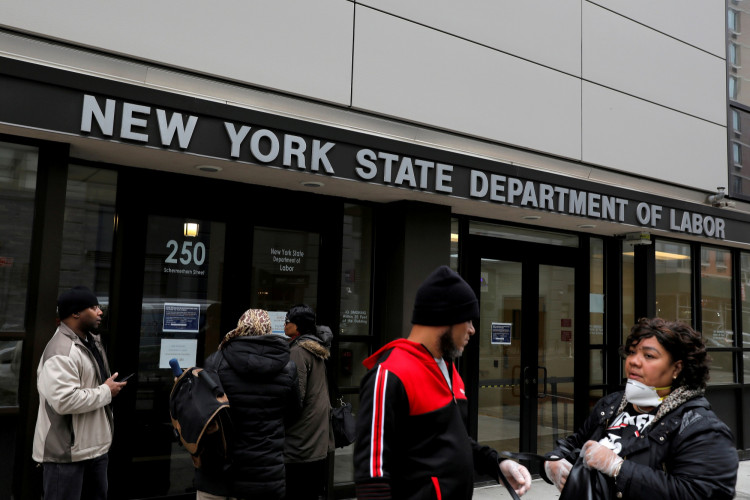Job losses among Americans due to the worst economy since the Great Depression of 1929 remain horrific and historic with more than 30.3 million being fired from their jobs over the past six weeks alone. This total represents 18% of the U.S. total labor force of 165 million.
On Thursday, the U.S. Department of Labor released its weekly jobless claims data showing 3.84 million Americans filed for unemployment insurance claims during the week ending April 25. There were 4.44 million unemployed in the previous week.
"This is the fourth consecutive slowing in the pace of new jobless claims, but it is still horrible and underlines the severe economic consequences of the Covid-19 containment measures," said James Knightley, an ING economist, in a note to clients Thursday.
He said the re-opening to the business of some states, such as Georgia, Tennessee, South Carolina, and Florida appear to have gone fairly slowly. He noted consumers remain reluctant to go shopping or visit a restaurant due to lingering COVID-19 fears.
Also, the social distancing restrictions placed on the number of customers allowed inside restaurants don't make it economically justifiable for some restaurants to re-open.
"Evidence so far suggests very little chance of a V-shaped recovery, meaning that unemployment is unlikely to come down anywhere near as quickly as it has been going up," according to Knightley.
The demoralizing unemployment numbers came only a day after the federal government revealed a massive 4.% plunge in U.S. GDP for the first quarter. The Department of Commerce said GDP had grown nearly unimpeded since the Great Recession from 2007 to 2009. This 10 year-long record economic expansion saw the national unemployment rate plunged to a 50-year low of 3.5%. It also saw the U.S. economy add jobs for 113 months in a row.
American economists predict weekly jobless claims will be in the millions over the next few weeks into May, but a steady decline is expected afterward.
"We expect initial jobless claims to continue to decline on a weekly basis," said Lewis Alexander, chief U.S. economist at Nomura, Asia's global investment bank. "Many workers affected by closures of nonessential businesses have likely already filed for benefits at this point."
WalletHub reported states with the biggest increases in unemployment due to the pandemic are led by the southern states of Florida (432,000 jobless claims), Georgia and Kentucky. Behind them were Louisiana, North Carolina, South Dakota, Virginia, West Virginia, Mississippi and Alabama. It said these states can do something to minimize their unemployment rates.
"States should aggressively focus on helping the companies in the most need," said Jill Gonzalez, WalletHub analyst. "The federal response will include sending checks to most citizens, even those whose income has not been affected by the coronavirus. States can use a more targeted approach to divert resources to the companies affected the most, thus having a maximum impact for the money spent."






